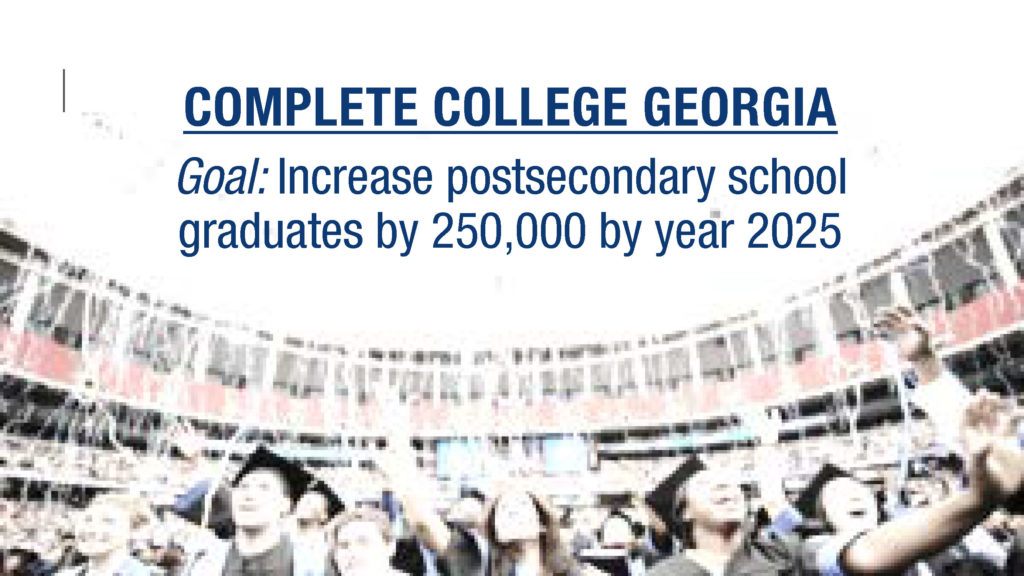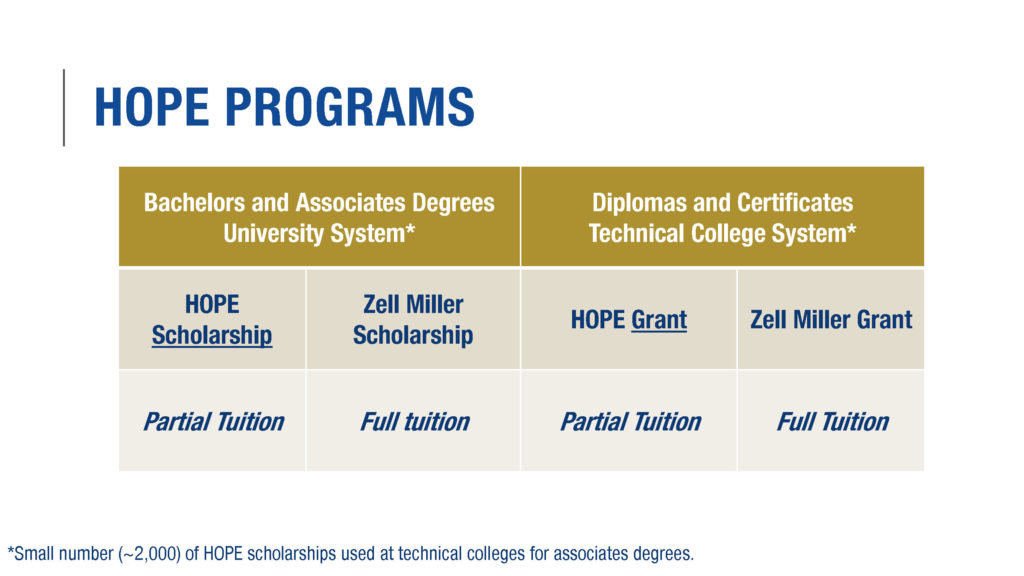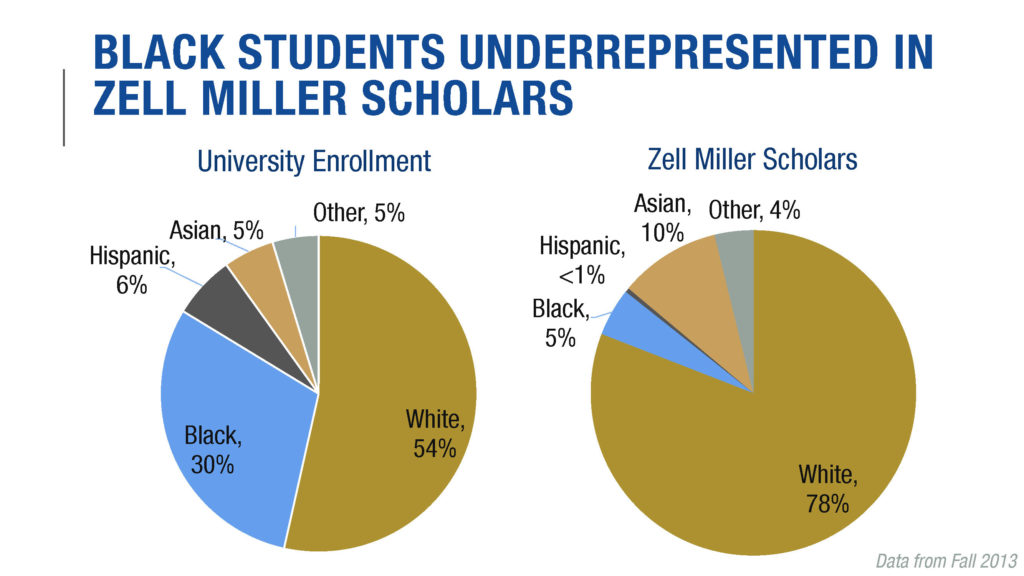Georgia’s lottery-funded HOPE Scholarships and Grants are among the state’s most well-known programs, and thousands of students benefit from them. However, GBPI’s analysis shows that most students, many of modest means, do not benefit from the state’s primary financial aid program.
Below you’ll find an abridged version of a presentation titled Equity in Higher Education. You can download the full presentation here.
Based on projections that show 60 percent of Georgia’s jobs will soon require postsecondary education or training, the state set a goal to increase the percentage of young adults with a postsecondary degree or credential from 42 to 60 percent. This translates to an additional 250,000 graduates by 2025.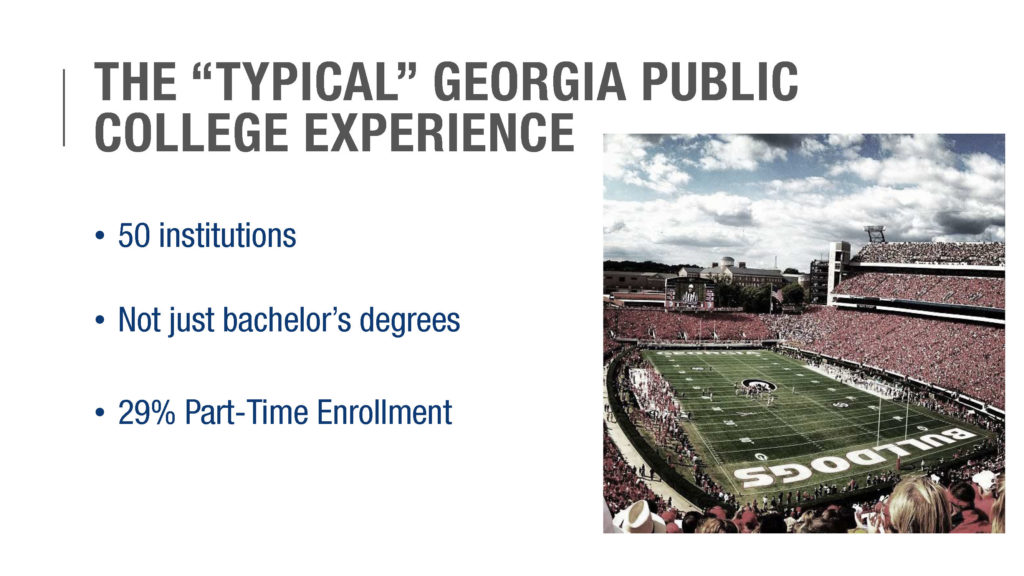
Reaching this goal will require boosting college completion rates across all sectors of a diverse higher education system that includes four-year universities, two-year and technical colleges. These institutions vary in their missions and serve students of all ages, races and ethnicities, with varying levels of academic preparation and financial means.
The four main HOPE programs cover bachelors and associates degrees, as well as technical college diplomas and certificates. The HOPE Scholarships and Grants used to cover full tuition for all who qualified, but after cuts in 2011, they now provide partial tuition for most students. The HOPE Scholarship requires a 3.0 GPA, and the Zell Mill requires a 3.7 high school GPA plus a high score on the SAT or ACT. Both scholarships require passing at least four rigorous, college-level courses.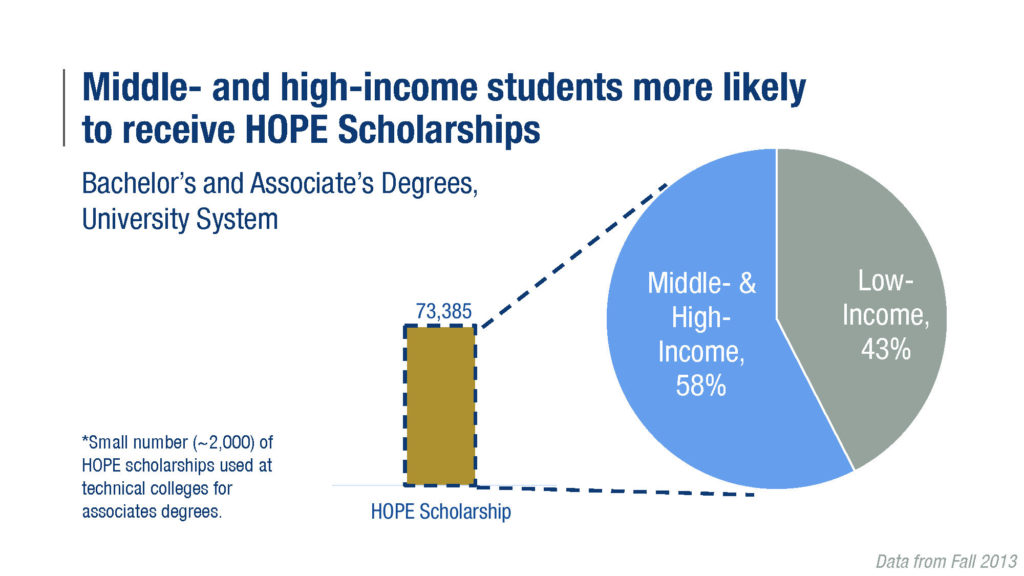
Fewer than half of students in the university system receive state aid through HOPE Scholarships. Middle and high-income students are more likely to receive the scholarships. Low-income students, or those who also receive federal Pell Grants to help pay for college, are less likely to receive HOPE.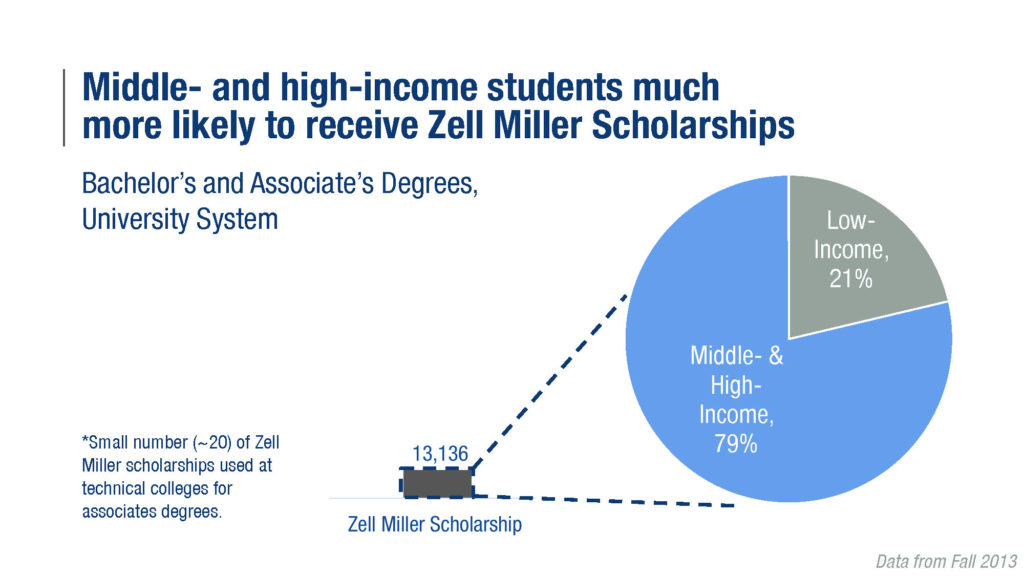
In Georgia, the largest state-funded scholarships tend to be directed towards students with the least financial need. The benefits of the full-tuition Zell Miller Scholarships are more likely to be awarded to middle and high-income students.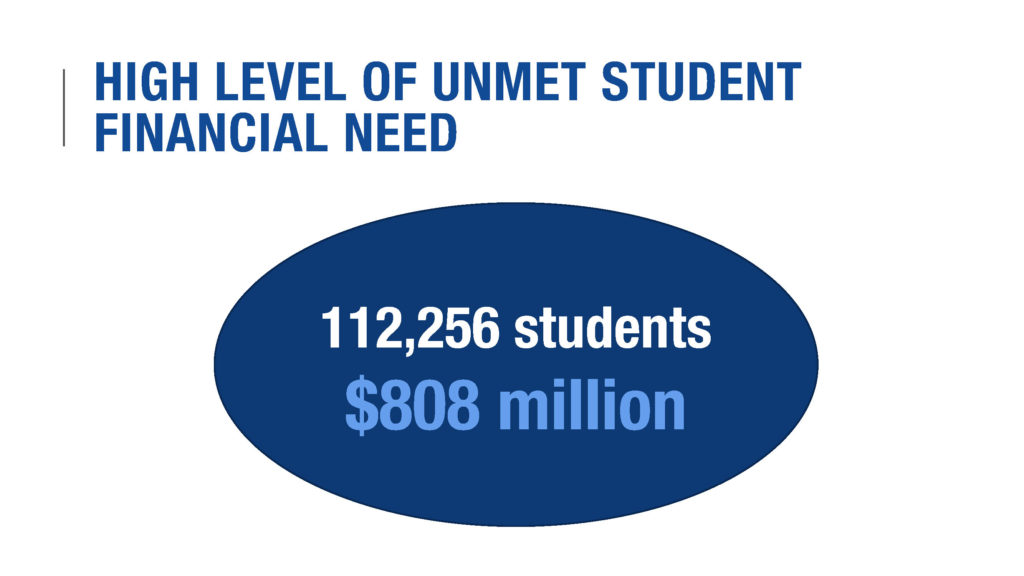
The university system estimates more than 112,000 students have unmet financial needs totaling $808 million. Many students work to fill the need. However, low wages and high tuition, fees and housing costs mean many students struggle to cover costs.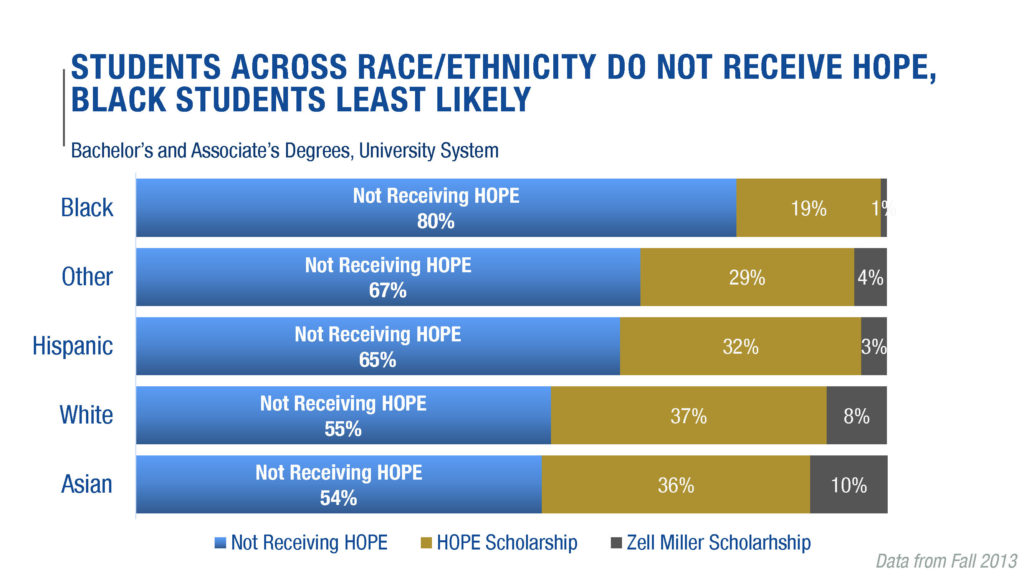
Most students across race and ethnicity do not receive HOPE Scholarships. However, black students are the least likely to qualify for this form of state aid.
The difference is most dramatic when comparing overall university enrollment (left) and recipients of the full-tuition Zell Miller Scholarship (right). The full-tuition Zell Miller Scholarships disproportionately benefit white and Asian students.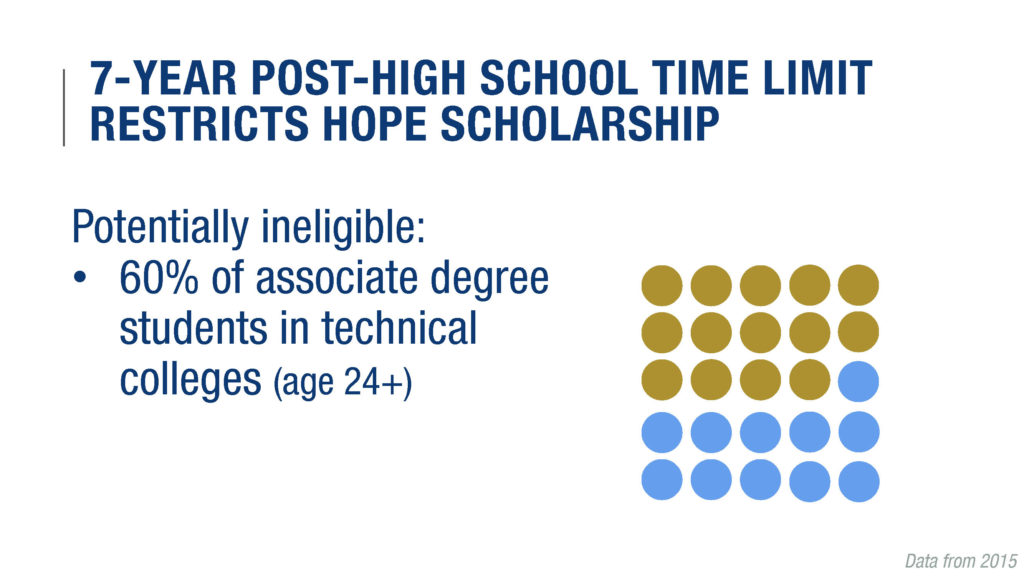
HOPE Scholarships are intended for students pursuing both associate’s and bachelor’s degrees, and colleges within the university and technical college systems offer associate’s degree programs. Technical college systems tend to serve older students, and it is estimated that 60 percent of associate’s degree students in technical colleges may be ineligible for the HOPE Scholarship – regardless of their grades – because of a time limit that disqualifies students from receiving scholarships if they are more than seven years removed from their high school diploma.
GBPI’s analysis questions whether HOPE alone is enough to meet Georgia’s higher education goals. While rewarding students for academic performance is a valid policy aim, pursuing this goal alone while neglecting to support college access and completion for a broader group of students does not adequately meet the state’s or students’ needs.
For more information, read the report or download the full presentation.
